Open Prostatectomy for Benign Prostatic Hyperplasia (BPH) in Germany
Treatment prices are regulated by national law of the corresponding countries, but can also include additional hospital coefficients. In order to receive the individual cost calculation, please send us the request and medical records.

Department of Adult and Pediatric Urology, Andrology
The Department of Adult and Pediatric Urology, Andrology offers the full range of services in the areas of its specialization. Men and boys with diseases of the reproductive system can be diagnosed and treated in the medical facility. Doctors also treat infertility and erectile dysfunction. Medical care is provided to men and women with diseases of the urinary system, namely kidneys, ureters, bladder, and urethra. The department is certified as the Prostate Cancer Center by the German Cancer Society (DKG), which indicates the excellent quality of the services provided in this area. The department's urologists have a perfect command of the innovative treatment methods, including holmium laser enucleation of the prostate (HoLEP), photodynamic therapy, and da Vinci robot-assisted surgery. The department employs comprehensively trained and experienced doctors who apply advanced medical achievements in their practice. Each patient is provided with an individual approach, considering their specific needs and wishes.
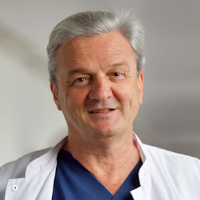






Department of Adult and Pediatric Urology
The Department of Adult and Pediatric Urology provides high-precision diagnostic examinations and effective treatment for diseases of the genitourinary system and reproductive system in men and boys. Of particular interest is drug therapy and surgical treatment of prostate, bladder, kidney, testicular, and penile cancers. The department is part of the Comprehensive Cancer Center Ulm (CCCU). For the patient, this means that their clinical case is studied by a multidisciplinary tumor board, which determines the optimal treatment tactics. The department is also certified by the German Cancer Society (DKG), so all therapeutic procedures meet strict national and international standards. The department's team of urologists also has unique clinical experience in the minimally invasive treatment of kidney stone disease, benign prostatic hyperplasia, neuro-urological dysfunction, and all urologic diseases in children. During the surgical treatment, the specialists at the medical facility successfully use minimally traumatic surgical techniques. They perform endoscopic, laser, minimally invasive, and robot-assisted surgery using the innovative Da Vinci system. The department treats about 3,000 inpatients and 9,000 outpatients with clinical cases of varying complexity annually. The number of surgical procedures performed and treatment outcomes are regularly published by the authorized commission of the Initiative Quality in Medicine (IQM).
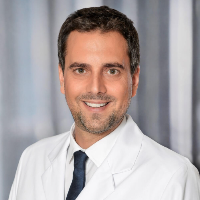





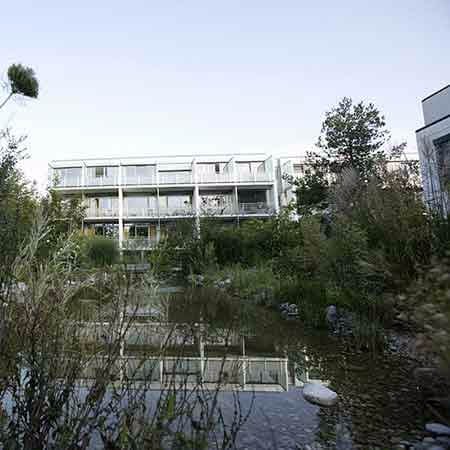
Department of Adult and Pediatric Urology, Andrology
The Department of Adult and Pediatric Urology, Andrology offers the full range of services for the diagnostics and treatment of urologic diseases in men and children, as well as urogynecologic disorders in women. One of the priority focuses of the department's specialization is the restoration of potency in men. According to the international ratings, this is the best hospital in Europe, where a team of urologists effectively treats erectile dysfunction. Another key focus of the department's work is on the treatment of benign and malignant prostate diseases. To treat prostate cancer, the doctors perform low-traumatic robot-assisted interventions using the very latest da Vinci® XI HD surgical system. The therapeutic offer is complemented by the treatment of pathologies of the kidneys, ureters, bladder, testicles and penis. In the field of pediatric urology, the correction of congenital malformations of the reproductive system in boys is of particular interest. The department's doctors are professionals in their area of specialization, so the patients can be sure that they will certainly find an effective solution even for the most complex clinical case.
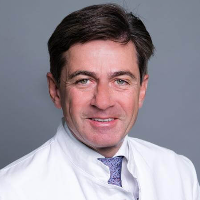
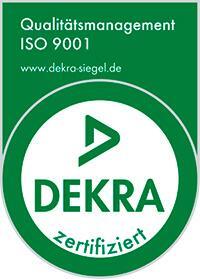
Open adenomectomy is historically the first treatment option for benign prostatic hyperplasia and is still one of the most commonly performed surgical procedures. The essence of the surgery is the removal of all or most of the prostate gland, usually together with the capsule and the prostatic urethra. You can undergo your surgical treatment in one of the German hospitals. You are welcome to use the Booking Health website to get medical services abroad.
Content
- Principles of therapy for benign prostatic hyperplasia
- When can open adenomectomy be used for benign prostatic hyperplasia?
- How is open adenomectomy performed for benign prostatic hyperplasia?
- Safety of open adenomectomy for benign prostatic hyperplasia
- Benefits of open adenomectomy for benign prostatic hyperplasia
- Where can I have adenomectomy for the treatment of benign prostatic hyperplasia?
Open prostatectomy is a surgical procedure to treat severe BPH by removing the enlarged part of the prostate through an abdominal incision.
In Germany, open prostatectomy for benign prostatic hyperplasia is performed under general anesthesia. Surgeons make an incision to access and remove the enlarged prostate tissue.
Compared to other treatments, open prostatectomy offers long-lasting symptom relief for severe BPH cases and is effective for very large prostates.
Germany's medical specialists are highly experienced in open prostatectomy, with many having performed numerous procedures and utilizing advanced surgical techniques.
Open prostatectomy has a high success rate in treating BPH. Factors affecting outcomes include prostate size, overall health, and surgeon expertise. Booking Health can help find experienced specialists in Germany.
Principles of therapy for benign prostatic hyperplasia
Most men with benign prostatic hyperplasia receive conservative therapy. This helps curb the growth of prostatic tissue and control the symptoms of the disease while allowing normal urinary function.
Conservative therapy may become ineffective. When the prostate reaches a significant size or when it grows locally in the area of the prostatic urethra, compression and irritation of the urinary tract occur. The patient's symptoms worsen, and urinary retention may develop. In such cases, conservative therapy may no longer provide the necessary results, so surgical treatment or minimally invasive medical procedures are used.
When can open adenomectomy be used for benign prostatic hyperplasia?
According to the recommendations of the European Association of Urology, surgical adenomectomy is one of the two main methods of treatment for benign prostatic hyperplasia when the organ volume exceeds 80 ml, along with laser enucleation, a minimally invasive medical procedure.
Open resection of the prostate remains one of the most commonly used treatments for benign prostatic hyperplasia in urology. It accounts for 30% to 70% of all surgeries and invasive medical procedures for benign prostatic hyperplasia in different countries.
How is open adenomectomy performed for benign prostatic hyperplasia?
The surgery is performed under general anesthesia. The doctor makes an incision in the perineum or in the lower abdomen.
A suprapubic transvesical approach is most commonly used. The doctor makes an incision in the lower abdomen, dissects the bladder, dissects the prostate capsule, and then removes it along with the prostatic urethra. The surgeon then performs prostate bed hemostasis (cessation of bleeding), sutures the bladder, and closes the surgical wound.
The duration of bladder catheterization after surgery ranges from 3 to 8 days, depending on the surgical technique used and the course of the postoperative period. Patients stay in the hospital for 1 to 2 weeks.
Safety of open adenomectomy for benign prostatic hyperplasia
Despite the fact that open adenomectomy is the most traumatic surgery for the treatment of benign prostatic hyperplasia, it is considered safe.
Patient mortality after open prostatectomy is 0.25%. This is higher than after TUR of the prostate (0.1%), an endoscopic medical procedure that is performed through a transurethral (through the urethra) approach. However, a direct comparison of patient mortality rates is inappropriate because open adenomectomy is performed in more severe cases of the disease, often against a background of acute urinary retention.
Patients lose more blood after open adenomectomy compared to laparoscopic and transurethral procedures. Some may require a blood transfusion.
Benefits of open adenomectomy for benign prostatic hyperplasia
Open prostatectomy is historically the first method of surgical treatment for benign prostatic hyperplasia and is still used today. Its benefits are as follows:
- Possibility of total removal of the prostate along with the capsule
- Lowest risk of recurrence of benign prostatic hyperplasia among all treatment methods
- No recurrence after total removal of the prostate gland
- Prevention of prostate cancer, which is especially important for older patients with high PSA levels
- Possibility of performing surgery for bladder diverticulum
The advantage of open adenomectomy compared to transurethral procedures is a faster recovery of urination (as early as 3-4 days).
However, laparoscopic and robot-assisted adenomectomy have the same advantages. These techniques are less traumatic. The operations are performed through short abdominal incisions. Compared to them, the advantage of open prostatectomy is its availability and low cost of treatment.
Laparoscopic surgery is the most common method of treatment in Germany, although surgeons can also perform open adenomectomy. The disadvantages of open surgery are a long hospital stay (1-2 weeks), significant blood loss (7-14% of patients require transfusions of blood components), and more pronounced postoperative discomfort.
Where can I have adenomectomy for the treatment of benign prostatic hyperplasia?
You can undergo your surgical treatment of benign prostatic hyperplasia using open adenomectomy (prostatectomy) in one of the German hospitals. Treatment in Germany has many advantages. These include the following:
- High-precision diagnostics
- A personalized approach to choosing a treatment method for benign prostatic hyperplasia
- State-of-the-art equipment
- Low risk of complications
- Reliable results
- Comprehensive postoperative care
You can find out the cost of treatment, choose the most suitable German hospital, and make an appointment for your treatment in Germany using the Booking Health service. Our website presents the best urology centers and lists the prices of procedures and surgeries. On our website, you can compare the cost of treatment in different German hospitals and make an appointment for your treatment in Germany at the best price.
The Booking Health team will help you choose a German hospital that specializes in the treatment of benign prostatic hyperplasia and demonstrates good results. We will make an appointment at the hospital for your preferred dates and take care of all the arrangements for your treatment in Germany. The prices for medical services in German hospitals will be lower for you in comparison with directly seeking medical help from urology centers due to the absence of additional fees for foreign patients.
Authors:
The article was edited by medical experts, board certified doctors Dr. Nadezhda Ivanisova and Dr. Vadim Zhiliuk. For the treatment of the conditions referred to in the article, you must consult a doctor; the information in the article is not intended for self-medication!
Our editorial policy, which details our commitment to accuracy and transparency, is available here. Click this link to review our policies.
Sources:

